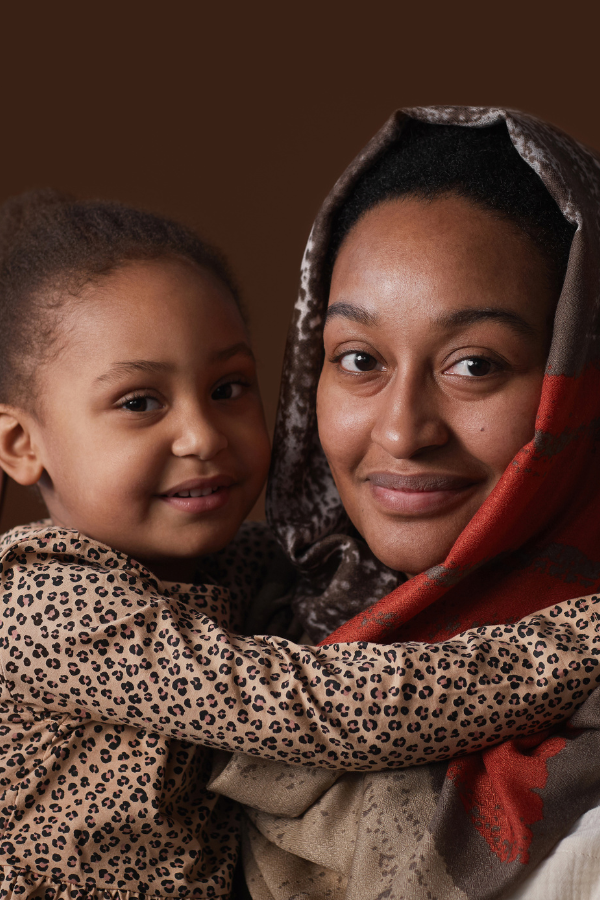

From Permissive to Authoritarian: Four Types of Parenting Styles
Summary
Understanding different types of parenting styles, such as authoritative, authoritarian, permissive, and uninvolved, can help shape child development. These styles vary based on responsiveness and demandingness. Critics argue for a more nuanced approach, considering factors like cultural context and individual needs. Gentle parenting, emphasizing empathy and non-punitive discipline, blends aspects of authoritative and permissive styles. Choosing the right style involves assessing your child’s temperament, aligning with family values, and balancing responsiveness and demandingness.
Reflection Questions
- How does your family’s parenting style align with the characteristics of authoritative, authoritarian, permissive, or uninvolved parenting? What adjustments could be made to better meet your child’s needs?
- In what ways does cultural background influence parenting styles and values within your family or community? How might cultural factors shape your approach to parenting?
- Reflect on your own experiences with discipline as a child. How have these experiences influenced your current parenting practices, and are there any changes you would like to make?
Journal Prompt
Consider a recent parenting challenge you faced and how you approached it. Reflect on the effectiveness of your response, considering factors like communication, discipline, and emotional support. What lessons did you learn from this experience, and how might you apply them in future parenting situations?
Researchers argue that the style of parenting you adopt can set the trajectory for your child’s behavior, academic performance, and future interpersonal relationships. Recognizing this impact is crucial for understanding why certain parenting styles are more effective than others in promoting healthy child development. Let’s explore Diana Baumrind’s core four types of parenting styles and their impacts on a child’s life: authoritarian, authoritative, permissive, and uninvolved. The classification of these parenting styles is based on two key dimensions: responsiveness and demandingness. We’ll also discuss where “gentle parenting” fits within this schema and which parenting practices family environments data suggest are best. Read on to learn more about authoritative, authoritarian, uninvolved, and permissive parents.
The Beginnings of Diana Baumrind, Maccoby, and Martin’s Core Four Parenting Styles


Diana Baumrind began her seminal work on parenting styles among families in the early 1960s. Her research was largely conducted at the Institute of Human Development at the University of California, Berkeley. Baumrind was interested in understanding how different types of parental control could affect children’s behavior and development. She started by observing preschool-age children and noting various aspects of their behavior and their parents’ styles of interaction.
From these observations and further studies, Baumrind identified three initial parenting styles: authoritative, authoritarian, and permissive. As for authoritative, Baumrind found that these parents were both demanding and responsive. They set clear standards and limits for their children but were also communicative and supportive. They balanced high demands with emotional responsiveness and were assertive without being overly intrusive or restrictive.
Authoritarian parents were highly demanding and directive, but not responsive. They valued obedience, structure, and discipline over communication, and expected their commands to be obeyed without explanation. Permissive parents were responsive but not demanding. They were lenient, did not require mature behavior, and allowed considerable self-regulation.
The framework she developed categorizes parenting behaviors primarily along two dimensions: responsiveness (warmth) and demandingness (control). The former dimension measures the degree to which parents are supportive and attuned to their children’s needs, emotional expressions, and interests. It reflects how sensitive and warm parents are towards their children. The latter dimension assesses how much control over decisions and behaviors parents exert on their children. It includes the expectations of maturity and compliance that parents have, as well as the disciplinary strategies they use to enforce rules and manage behavior.
Expansion by Maccoby and Martin


In 1983, Eleanor Maccoby and John Martin expanded Baumrind’s model to include a fourth style based on their reanalysis of the data and further studies. They introduced the Uninvolved (or neglectful) parenting style, characterized by low responsiveness and low demandingness.
Uninvolved parents were associated with the least adaptive outcomes, with children often exhibiting issues like poor self-control, low self-esteem, minimally effective coping strategies, and less competence in social and academic domains. Parents who adopt these styles generally provide for their child’s basic needs. However, they are neglectful parents in terms of the child’s emotional life.
Additional Contributions
Following Baumrind, Maccoby, and Martin, other researchers have continued to explore the impact of these parenting styles across different cultures and contexts. They have examined variables such as socio-economic status, educational background, and cultural differences, providing a more nuanced understanding of how parenting styles can be adapted or might manifest differently in diverse settings.
Impact and Further Research
Baumrind’s work and its expansions have had a profound impact on parenting research and practical applications in educational psychology, social work, and therapeutic practices. Her initial framework has been used to train parents, guide policy, and inform a multitude of further research studies aimed at refining our understanding of parent-child dynamics.
Baumrind’s approach to categorizing different parenting styles based on observed behaviors and associated child outcomes has provided a valuable tool for researchers and practitioners alike, helping to frame conversations about best practices in parenting across the globe.
Parenting Styles and Effects Identified by Maccoby, Martin, and Baumrind’s Model
Authoritative Parenting


Authoritative parenting is defined by a balanced approach that combines high responsiveness with high demandingness. Parents who adopt this style are supportive and nurturing, yet they also enforce clear rules and expectations. They engage in open communication, encourage independence, and provide reasoned explanations for their rules and decisions.
Authoritative parents adeptly balance firm rules with emotional support. They are responsive to their children’s emotional and developmental needs while maintaining a structured environment that promotes discipline and respect. This balance is achieved through consistent, fair disciplinary practices coupled with warmth and support, fostering an atmosphere where children feel secure yet free to explore and express themselves.
Benefits of Authoritative Parenting for Children
The benefits of authoritative parenting are well-documented across various domains. Children raised by authoritative parents typically display better social skills, are more academically successful, and exhibit higher levels of emotional well-being. They tend to have higher self-esteem, better self-regulation, and more effective coping skills, which contribute to more positive interactions both in school and in social settings.
Fuel your creative fire & be a part of a supportive community that values how you love to live.
subscribe to our newsletter
Criticisms of Authoritative Parenting
While authoritative parenting is often viewed as the most effective style, it is not without its challenges. It requires a considerable amount of time and energy to maintain both high responsiveness and demandingness, which might be particularly challenging for parents juggling multiple responsibilities.
Additionally, this style assumes that children are capable of understanding and responding to reasoned communication, which might not always align with a child’s developmental stage or individual temperament. Some critics also argue that the high expectations characteristic of this style could lead to stress or anxiety in some children, especially if not appropriately adjusted to the child’s capabilities and needs.
Authoritarian Parenting


Authoritarian parenting is characterized by low responsiveness and high demandingness. Parents employing this style enforce strict rules and expect complete obedience, often without providing explanations for their rules. They typically show little warmth or nurturing, prioritizing discipline over emotional responsiveness.
In authoritarian parenting, the emphasis is placed squarely on obedience, authority, and adherence to strict rules. These parents value order and discipline above all and believe that their approach will instill respect for authority and proper behavior. Interaction often revolves around correcting behavior rather than reciprocal communication, with parents expecting orders to be followed without question.
Positive and Negative Impacts of Authoritarian Parents
The impacts of authoritarian parenting can be complex. While these children often grow up to be well-behaved and disciplined, they may struggle with social adeptness and emotional regulation. The lack of emotional support and open communication can lead to issues such as low self-esteem, anxiety, and difficulty in managing social interactions. These children might also exhibit higher levels of aggression or may become overly dependent on external sources of authority.
Authoritarian parenting is more prevalent in cultures and communities where conformity and respect for authority are highly valued. It can also appear more frequently in military families or in households where parents have experienced very strict upbringing themselves. While this style is generally seen as less effective in fostering independent and well-rounded children, it may be considered effective in situations requiring strict discipline, such as during certain stages of military training or in highly structured environments where immediate obedience is necessary.
Permissive Parenting


Permissive parenting is characterized by high responsiveness paired with low demandingness. Parents who practice this style are typically very warm and accepting, often acting more like a friend than a traditional authoritative figure. They set few boundaries or rules and rarely enforce discipline, allowing children considerable freedom in their actions.
Permissive parents are lenient and avoid imposing strict rules or expectations. They prioritize their child’s freedom and happiness, often to the extent of overlooking the need for structured guidance. These parents are highly affectionate and communicative, always eager to nurture but hesitant to discipline, which can lead to a lack of structure in the child’s environment.
Effects of Permissive Parenting on Children
While children of permissive parents may benefit from high levels of emotional support, they often face challenges such as independence issues and behavioral problems. Without clear boundaries and consistent discipline, these children may struggle with self-regulation and might develop a sense of entitlement or have difficulties adhering to societal norms and expectations. They may also exhibit problems with authority and lack the perseverance and motivation needed in structured settings like school.
Contexts in Which This Style May Arise
Permissive parenting can emerge in various contexts. It may be more common among parents who prioritize their careers or personal growth and feel guilty about not spending enough time with their children, leading them to compensate by being less strict.
It’s also seen in families where parents are particularly responsive to cultural trends emphasizing children’s autonomy and freedom, or among those who had authoritarian parents themselves and wish to adopt a more liberal approach towards their own children. In some cases, it arises simply from a parent’s natural inclination to avoid conflict and confrontation.
Uninvolved Parenting
Uninvolved parenting is marked by both low responsiveness and low demandingness. Parents with this style are generally detached from their children’s lives, showing little emotional involvement or interest. They provide minimal supervision, guidance, or support, often meeting only the basic physical needs of their children and largely neglecting their emotional and developmental needs.
Uninvolved parents often take a hands-off approach to parenting, either due to indifference or personal issues that consume their attention. They do not set firm boundaries or standards for behavior and are not responsive to their children’s emotional needs. This minimalistic approach results from either a lack of knowledge about parenting, personal overwhelm, or a prioritization of other aspects of life over child-rearing.
Consequences for Children


The impacts of uninvolved parenting are generally negative and can be severe. Children raised in this environment typically face numerous developmental challenges, including emotional detachment, social withdrawal, and behavioral issues.
They may struggle with self-esteem and often exhibit poor academic performance. The absence of parental guidance and emotional support can lead to difficulties in forming healthy relationships and may predispose children to mental health issues like depression and anxiety.
Factors Leading to This Style
Several factors can lead parents to adopt an uninvolved style. These include overwhelming personal problems, such as mental illness, substance abuse, or severe financial stress, that leave them unable to provide adequate care and attention.
A lack of parenting knowledge or a background of similar parenting experiences where emotional distance was the norm can also contribute. Additionally, parents who are excessively focused on their careers or personal pursuits might inadvertently drift into this less involved parenting style.
Weighing Criticisms of Baumrind’s Core Four Parenting Styles
Many researchers and parents have issued criticisms and challenges to the standard classification of the four parenting styles (authoritative, authoritarian, permissive, uninvolved) as outlined by Diana Baumrind and later expanded by Maccoby and Martin.
These criticisms encourage a broader and more nuanced examination of parenting practices and highlight the importance of adapting parenting theories to include a wider range of cultural, socioeconomic, and individual factors. This evolution in understanding can help develop more inclusive and practical models that resonate with diverse global communities. Let’s consider a few critiques of Baumrind’s classification.
Cultural Bias


One of the most significant criticisms is that Baumrind’s model is heavily based on Western, particularly American, family dynamics and values. Critics argue that these styles may not adequately capture the nuances of parenting in diverse cultural contexts.
For example, what is considered authoritarian in one culture might be seen as protective or normative in another. Researchers like Ruth Chao, Ching-Yu Huang, and others have suggested that the authoritarian style may not have the same negative connotations or effects in cultures where strict parental authority is a component of familial piety and respect.
Oversimplification
The four-style model can be seen as overly simplistic when it comes to addressing the complex realities of parenting behaviors and their effects on children. Parenting is a dynamic and fluid process influenced by numerous factors including spiritual ideologies, socioeconomic status, parental education, family structure, and individual child characteristics such as temperament. Not one parenting style in this system considers those variables adequately.
Consider single parent families. A single parent often manages fewer resources, whether it’s time, energy, or financial support. These constraints can influence their parenting style. For example, a single parent might lean towards a more permissive style due to time constraints and fatigue, as they might not have the energy to enforce rules consistently.
The involvement of extended family or community can also influence parenting styles in single-parent families. If additional support systems are strong, single parents might be better able to maintain an authoritative style, similar to dual-parent families.
Static Categories


The model tends to categorize parenting styles as static, whereas in reality, parents may change their parenting approaches based on context, child’s age, or specific circumstances. For instance, a parent might employ more permissive strategies during a family crisis or more authoritarian tactics in matters of safety.
Focus on Parental Control
The framework emphasizes parental control and responsiveness, potentially underestimating the importance of parental involvement in children’s lives in other ways, such as mentoring or fostering independent thinking. The focus on immediate child compliance and behavior management may overshadow long-term developmental goals such as moral reasoning, ethical behavior, and emotional resilience.
Neglect of Emotional Aspects
While research by Nancy Darling and Laurence Steinberg supports the effectiveness of authoritative parenting across various measures of child well-being, some argue that this framework does not focus enough on the child’s emotional life.
Critics also point out that the model could place greater emphasis on emotional intelligence and how parents handle their own emotional responses in different parenting scenarios. The emotional climate of the household, which includes how emotions are expressed and managed by parents, plays a crucial role in child development but is not a central focus of the model.
Where Does Gentle Parenting Fit Within These Types of Parenting Styles?


Gentle parenting, while not explicitly categorized within the traditional Baumrind model of parenting styles, can be seen as incorporating elements of both authoritative and permissive parenting, but with a distinct emphasis on non-punitive discipline and empathy. Gentle parenting, therefore, while it aligns closely with the authoritative style in terms of its balanced approach, distinguishes itself with its methods of discipline and its deep focus on emotional communication and understanding.
It can be seen as an evolution of authoritative parenting that leans more heavily into the emotional and psychological aspects of raising a child. For more information about gentle parenting, stay tuned for our article about the best books on this type of parenting style.
Gentle Parenting’s Relationship to Authoritative Parenting
Gentle parenting shares many characteristics with authoritative parenting, especially in terms of responsiveness. Both styles emphasize the importance of being emotionally supportive and responsive to the child’s needs. Gentle parenting, like authoritative parenting, involves setting clear expectations and boundaries, but it does so with a strong focus on empathy and understanding the child’s perspective.
Communication and Reasoning: Both gentle and authoritative parents communicate the reasons behind rules and decisions, aiming to foster understanding and internal motivation in the child rather than mere obedience.
Balance of Warmth and Structure: Gentle parenting maintains a balance similar to authoritative parenting, where there is warmth and nurturance along with the guidance needed to help the child develop self-discipline and responsibility.
Gentle Parenting’s Relationship to Permissive Parenting


Gentle parenting also has some similarities with permissive parenting, primarily in its high level of warmth and responsiveness. However, gentle parenting differs significantly in its approach to discipline and expectations.
Discipline Approach: Unlike permissive parenting, which often lacks firm boundaries, gentle parenting involves setting clear boundaries but enforcing them in a compassionate and non-punitive way. Gentle parents use natural consequences and problem-solving strategies rather than punitive measures.
Guidance and Support: Gentle parenting involves actively guiding the child through challenges, which is less common in permissive parenting. Permissive parents tend to let children figure things out on their own, sometimes to the detriment of the child’s ability to handle adversity.
Unique Aspects of Gentle Parenting
One of the hallmarks of gentle parenting is its strict avoidance of traditional punitive measures like spanking, time-outs, or harsh reprimands. Instead, it focuses on teaching and guiding the child towards making better choices. Gentle parenting places a significant emphasis on developing emotional intelligence in children, teaching them to understand and regulate their emotions effectively.
Final Thoughts: Choosing the Right Parenting Style


Choosing the right parenting style is a dynamic process that involves careful consideration of your child’s temperament, your family values, and the specific circumstances of your family life. Parents should first assess how their natural parenting inclinations align with their child’s needs and the outcomes they hope to encourage.
For instance, a child with a more sensitive temperament might thrive under a gentle or authoritative approach that emphasizes empathy and support. It’s also crucial to reflect on how your parenting style supports the values you want to instill, such as independence, resilience, or respect. Balancing responsiveness and demandingness is key; providing emotional support and understanding while also setting clear expectations and maintaining consistent discipline helps foster a secure and nurturing environment.
Adapting your approach as your child grows and their needs evolve is also essential, ensuring that your parenting style remains both supportive and effective throughout their development. This adaptive approach not only promotes healthier development but also strengthens the parent-child relationship, making it more fulfilling and effective over time.
Which types of parenting styles has your family adopted? Where is there room for improvement? Let us know in the comments below.
Design Dash
Join us in designing a life you love.
-
All About Our 7-Day Focus & Flex Challenge
Sign up before August 14th to join us for the Focus & Flex Challenge!
-
Unique Baby Names Inspired by Incredible Women from History
Inspired by historic queens, warriors, artists, and scientists, one of these unusual baby names might be right for your daughter!
-
Finding a New 9 to 5: How to Put Freelance Work on a Resume
From listing relevant skills to explaining your employment gap, here’s how to put freelance jobs on your resume.
-
What is Generation-Skipping, and How Might it Affect Sandwich Generation Parents?
The emotional pain and financial strain of generation skipping can be devastating for Sandwich Generation parents.
-
Four Material Libraries Dedicated to Sustainability, Preservation, and Education
From sustainable building materials (MaterialDriven) to rare pigments (Harvard), each materials library serves a specific purpose.
-
Do You Actually Need a Beauty Fridge for Your Skincare Products? (Yes and No.)
Let’s take a look at what dermatologists and formulators have to say about whether your makeup and skincare belong in a beauty fridge.








